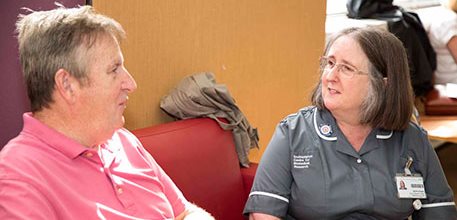
Men with a faulty form of the gene BRCA2 – a gene that raises the risk of breast cancer – should be offered regular checks for prostate cancer, say Southampton researchers, after study shows they are at an increased risk of developing cancer in the prostate.
Researchers, including from the University of Southampton and University Hospital Southampton NHS Foundation Trust, have found a strong link between men carrying a faulty form of the gene BRCA2 and those who develop early-onset aggressive prostate cancer.
Regular checks
The results, published in the journal European Urology, are interim findings from a long-term project known as the IMPACT study.
Over 3,000 participants with and without mutations in BRCA2 were recruited to the study which involved carrying out regular prostate-specific-antigen (PSA) checks – the standard test for prostate cancer – for three years.
The results showed those with the faulty BRCA2 gene were associated with a higher risk of developing early-onset aggressive prostate cancer, suggesting all men with the faulty gene should be offered regular PSA checks.
Saving more lives
“There has been uncertainty up to now over whether men with the BRCA2 mutation should be offered regular checks for prostate cancer, due to a lack of evidence,” said Mr Tim Dudderidge, a Consultant Urological Surgeon in Southampton, who is involved with the study.
“These interim results from the IMPACT study strongly support the introduction of regular PSA tests for this high-risk group of men, as it would aid early treatment and save lives.”
While cancer is not usually inherited, a person’s risk of getting cancer can be strongly influenced by certain genes.
The genes BRCA1 and BRCA2 are well known for raising the risk of breast cancer. The average lifetime risk of breast cancer for women is about 12%, but a BRCA1 or BRCA2 mutation raises the risk to between 69% and 72%.
However, it’s not just women who are affected – men with BRCA2 are 7% more likely to develop breast cancer than the general population, and around 20 in every 100 men with a BRCA2 mutation will develop prostate cancer before the age of 80.
Posted on Friday 20 December 2019